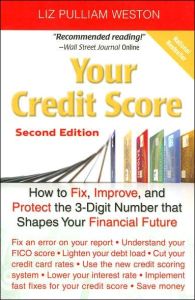Join getAbstract to access the summary!

Join getAbstract to access the summary!
Liz Pulliam Weston
Your Credit Score
How to Fix, Improve, and Protect the 3-Digit Number that Shapes Your Financial Future
FT Prentice Hall, 2007
What's inside?
What you don’t know about your credit rating can hurt you a lot. Learn the score – and what you can do about it.
Recommendation
You literally can’t afford to ignore your credit record. Every negative mark or mistake on your credit history can cost you big bucks: Over the course of a lifetime, a person with merely average credit will pay thousands more for a mortgage, car loan or credit cards than one with good credit. However, if you don’t know the difference between FICO and FICA, can’t understand why you have a 23.5% interest rate on your charge card, and were shocked when your car insurance payments went up even though you weren’t in an accident, don’t despair. Liz Pulliam Weston explains it all to you. Her book is brimming with accessible, vital information, and getAbstract believes that it will save you money, whether you’re just beginning to learn about personal credit or you’re an experienced, savvy consumer. And for that she deserves a lot of credit.
Summary
About the Author
Liz Pulliam Weston is a personal finance specialist who writes a nationally syndicated newspaper column. She appears regularly on TV and radio.
















Comment on this summary